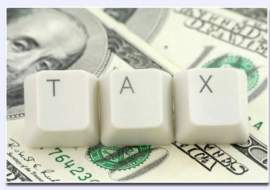
The Economic Classifications of Taxes

There are numerous economic classifications that pertain to taxes. There are progressive and regressive taxes. In both cases those taxes can be a determination in income elasticity and inelasticity. In addition, an individuals disposable income can be greatly influenced by the manner in which those taxes are collected. For example, taxes collected in a cyclical manner, do not allow taxpayers to utilize that money to invest or collect interest until their taxes are actually due. There are many factors that influence taxes and the manner in which those taxes directly effect the economy, allow for economic classification.
A progressive tax would be one that is influenced by an individuals income. For
example, the VAT, or Value Added Tax, could be progressive if more expensive,
non essential items were taxed at a higher rate. Currently, sales taxes are
regressive because they are issued at a flat percentage of the cost of an item.
Regressive taxes give those with a lesser income, a greater tax burden based on
the tax as a percentage of their salary. Income elasticity can be greatly
effected by either type of tax. If for example, bus rides were taxed at a flat
rate, those with lesser salaries may no longer be able to afford those bus
rides and they would become income elastic. Income elastic goods and services
are based on the sale of items in proportion with income. If however, an
individual required that bus ride to get to work, it would be income inelastic
and the purchase of other items would become income elastic as a result of the
decrease in disposable income. If however, bus rides were taxed repressively
based on income, rather than the cost of the bus ride, the ride would remain
unaffected by the tax because each tax payer would theoretically be able to
afford the tax. Regressive taxes are often unrealistic because that would mean
some proof of income would be necessary for every purchase. The only was to
enact a true progressive tax would be to cancel all taxes except income taxes.
Income taxes would then be determined as a direct percentage of income. Even
that is unrealistic.
Economic classifications for taxes can be made based on the effect of those
taxes in several forums. Economic classifications of elastic income and
inelastic income, determine the likelihood that the purchase of goods and
services will be effected by taxes. Regressive taxes have a larger overall
impact on the lower and middle class. The economic classification of
progressive taxes is determined by the taxpayers those taxes effect.
Progressive taxes are likely to increase the sales of items to the lower and
middle class.



















